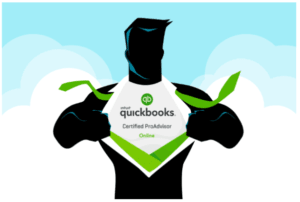
If you’re interested in an analytical, business-minded career, becoming a bookkeeper (especially a virtual bookkeeper) might be the right choice. And with no requirements for special certification and education, there are almost no downsides to seeing if it’s a good fit. You can take this exam from anywhere, as long as you have a reliable internet connection. One organization to look into is The American Institute of Professional Bookkeepers. They provide bookkeeping certifications and training, which can officially make you a Certified Bookkeeper. Once you’ve had some bookkeeping training, you’re ready for real-world bookkeeping jobs or experience.
- Her experience was key to supporting the organisation through significant changes and restructuring to deliver cost savings.
- Professionals who are not interested in leadership may also prefer bookkeeping jobs over accounting roles.
- I remember talking to the manager at my first job before they hired me.
- For instance, you may decide to pursue additional licenses or certifications.
- However, completing a bookkeeping certification program can teach you basic accounting and how to perform bookkeeping tasks and has the potential to set you apart from other bookkeepers.
- You can then use this in your email signature, on your business cards, social media sites, and other marketing materials.
Are bookkeepers in high demand?
We provide third-party links as a convenience and for informational purposes only. Intuit does not endorse or approve these products and services, or the opinions of these corporations or organizations or individuals. Intuit accepts no responsibility for the accuracy, legality, or content on these sites. Whether you’ve started a small business or are self-employed, bring your work to life with our helpful advice, tips and strategies.
Optional Certifications and Degrees
Whether you outsource the work to a professional bookkeeper or do it yourself, you’ll be able to reap a variety of benefits. Unlike accounting, bookkeeping zeroes in on the administrative side of a business’s financial past and present. Accounting, on the other hand, utilizes data from bookkeepers and is much more subjective. Bookkeeping is the process of tracking and recording a business’s financial transactions.
First Career Path to Become a Bookkeeper: Earn a Degree
A business must have bookkeeping processes and policies that keep company records up-to-date and accurate. For example, business owners must be diligent about keeping personal and business finances separate. In addition, smaller businesses may use single-entry bookkeeping, while larger businesses are more likely to use double-entry bookkeeping. As a bookkeeper, you may need to help the business learn the best practices to keep their financial records up to date and organized. Once you have successfully met all certification requirements, you’ll receive a certificate of completion, and you also can put the letters “CB,” which stands for certified bookkeeper, after your name.
How long does it take to complete the Professional Certificate?
To make sure you are confident that you have mastered each advanced bookkeeping skill, every section of every bookkeeping instruction workbook includes a double-quiz with detailed answers and explanations. Trying to juggle too many things at once only works to put your organization in danger. If you’re looking to convert from manual bookkeeping to digital, consider a staggered approach. Overhauling all at once can be overwhelming and discouraging, so it’s best to take it slow and make meaningful and intentional shifts. In these documents, transactions are recorded as a single entry rather than two separate entries. We help you build a highly profitable bookkeeping business partnering with Accounting Analytics.
Bookkeeping Certifications: CB vs. CPB

As a Zoho Books Advisor, you’ll receive free software, tech support when you need it, and a listing in their Zoho Advisor directory so that small businesses that need help can find you. You can also network, with exclusive https://www.bookstime.com/ access to Zoho’s partner portal and events that are conducted worldwide. As more people move to working from home, freelancing, or starting their own businesses, you may want to learn how to become a virtual bookkeeper.

Double-entry bookkeeping is the practice of recording transactions in at least two accounts, as a debit or credit. When following this method of bookkeeping, the amounts of debits recorded must match the amounts of credits recorded. This more advanced process is ideal for enterprises with accrued expenses. Bookkeeping is just one facet of doing business and keeping qualified bookkeeper accurate financial records. With well-managed bookkeeping, your business can closely monitor its financial capabilities and journey toward heightened profits, breakthrough growth, and deserved success. Therefore, the length of the Program is determined by the time you dedicate to the Program and your understanding of bookkeeping, payroll, and accounting.
For small businesses
This profession has fewer entry-level requirements than accounting, meaning that individuals may be able to become bookkeepers more quickly than they would accountants. Still, completing one or both of the licensing processes demonstrates that job applicants possess skills and competencies employers need. So, bookkeepers who can add “CPB” or “CB” after their names may be more competitive than other candidates.
Pass the Credentialing Exams
Make sure to bring proper identification and any required materials on exam day. After completing part one of the CB exam, repeat this process to take part two. Another difference to note between the CPB and CB credentials is cost. You must pay for each part of the required exam, along with any preparation courses you may take. As noted above, NACPB and AIPB both require annual fees as well to keep members’ credentials current.
- Bookkeepers must schedule and complete each section online within one year of the original purchase date.
- You must receive a passing score of 80 percent or better, and you can take it up to three times if you don’t pass on your initial attempt.
- For instance, they must understand how to produce balance sheets and income statements, as well as record organizational debits and credits.
- Accountants are required to have advanced certification, while bookkeepers are not.
- Additionally, the options outlined in the table below can be completed online, and many are self-paced, meaning you can work on them around your other responsibilities.
